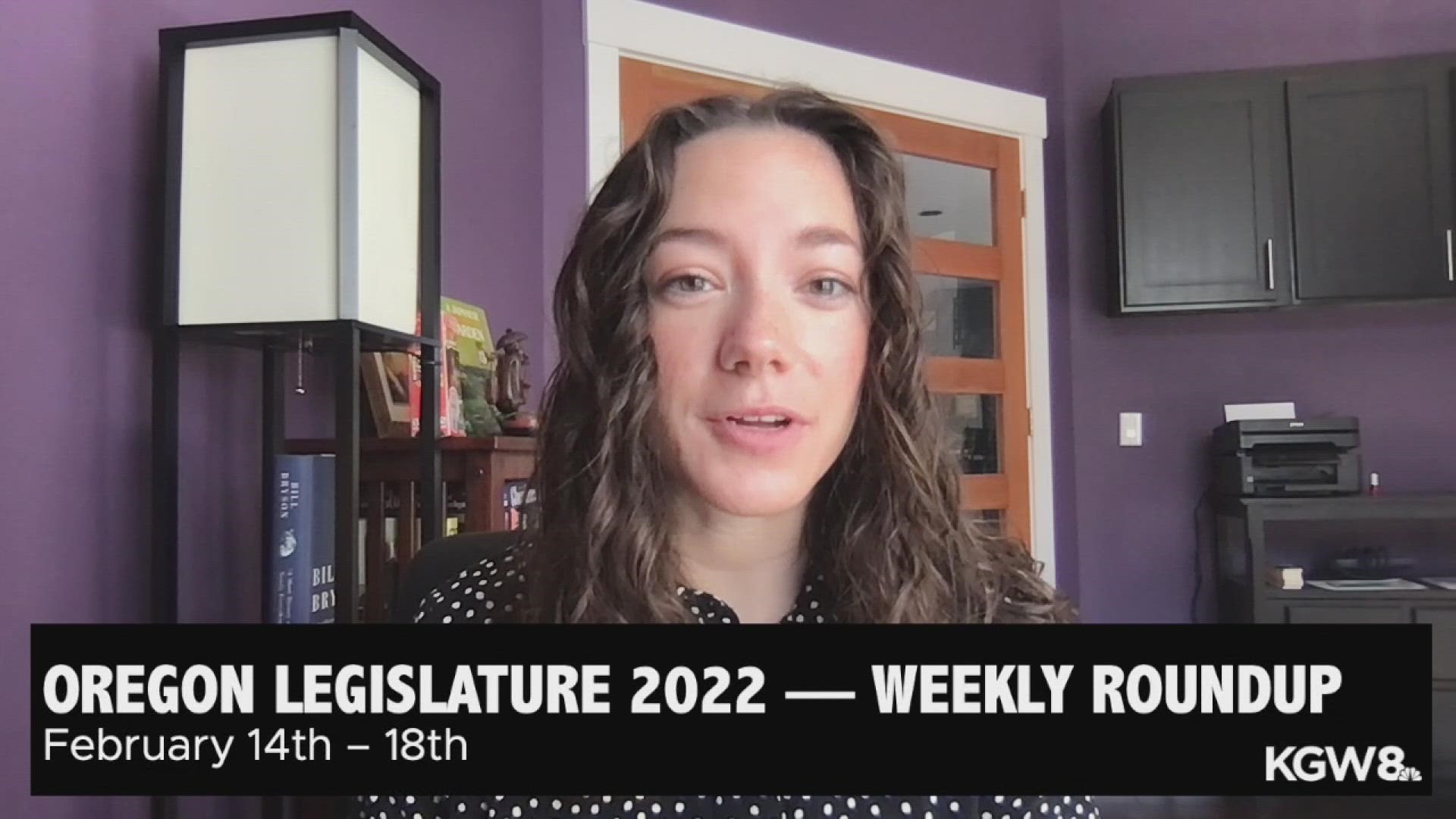SALEM, Ore. — The clock is ticking for Oregon lawmakers to get bills past the finish line with just over two weeks left in the 35-day short session.
This week, many bills cleared their first chamber vote, with legislation related to voting rights, housing, worker compensation and wildfires moving forward.
The legislature also saw familiar tactics between Republicans and Democrats as the GOP continued to push back on legislation mandating overtime pay for agricultural workers.
Overtime pay for agricultural workers continues to spark controversies
The House bill to give farmworkers overtime pay is this session’s most controversial bill.
Lawmakers voted along party lines Monday to move the bill out of committee. It will soon go to the House floor for a vote, after a brief pit stop in the House Revenue Committee.
Republicans continue to push back against the bill, saying giving employees overtime pay could further burden farm owners. Democrats argue it's unfair that farm workers have been excluded from being eligible for overtime pay.
And, in protest this week, Republicans brought back a tactic they’ve used in previous sessions — a quirk in the Oregon constitution that requires all bills be read in their entirety before any floor votes.
Many bills are around twenty pages long. Thursday, it took lawmakers an hour and a half to get through one technical bill, which would replace the word “alien” with the less derogatory term, “non-citizen,” in statute.
This slowdown tactic limits the time lawmakers can spend passing other legislation. That’s notable when lawmakers already have limited time to get bills to the finish line in a short session. Democrats are now having “Reada,” a speed-reading female robot, read all bills in order to keep the process moving as swiftly as possible.
According to House Republican spokesperson Andrew Fromm, Republicans would be willing to suspend the bill-reading requirement if there’s “constructive discussion” over the overtime bill. They’ve called for an “Oregon Solution” which could give farm owners more flexibility in when they need to give workers overtime pay, such as during peak harvest hours.
Republicans also proposed increasing the standard number of hours for farm employers from 40 to 50 and exempting livestock workers from overtime work.
Democrats, under pressure from advocates, voted against the amendment in a work session.
A spokeswoman for House Democrats said they've been working with farmers and farm workers for three years to find a solution that ensures overtime pay for workers and helps employers transition to a new system.
If lawmakers fail to pass legislation on the issue, Oregon’s Bureau of Labor & Industries has said it will settle this issue in favor of granting farm workers overtime pay.
Republicans try to implement governor impeachment process, limit commutations
Debates over executive power have also filled the chambers this session.
House Republicans attempted to resurrect a bill that would ask voters if they want to implement a process to impeach the governor. Oregon is currently the only state that doesn’t allow the impeachment of a governor.
Senate Republicans also moved to resurrect a bill that would allow voters to weigh in on whether or not the governor should need Senate approval when making commutations or pardons. This comes as Republicans warn of a crime wave in Oregon.
Both bills ultimately failed to gain steam.
Among other points of contention this week is a bill to allow the Oregon Health Authority to declare health care emergencies, in addition to the governor. And another bill could let Oregonians register to vote with a social security number, without needing a driver's license.
Both bills passed out of their first chamber, despite Republican opposition.
Bills related to workers’ rights, housing and wildfires move forward
Workers’ rights have been a hot topic this session, as a part of the continued fallout of the COVID-19 pandemic.
In the House, one bill passed which could ensure families of workers injured or killed on the job get adequate compensation, along with protecting workers against retaliation.
Other policies seek to address the crises of housing and homelessness.
House lawmakers voted in favor of a policy expanding where manufactured homes can sit, along with one that could specifically help homeless residents in Salem. If also passed by the Senate, the bill would require the Oregon Department of Administrative Services to lease underutilized state property in Salem as temporary housing.
Other bills that moved forward relate to wildfires, including one policy to give news media more access to cover fires and one to close loopholes in the wildfire defense system.
Most bills must have moved onto the second chamber by this Friday. This exempts legislation in a few select committees, such as larger packages like the governor’s workforce development package.
Policies to prevent fuel disasters in the case of an earthquake and limit police traffic stops continue to gain steam, despite not yet going to a floor vote.
Also, this week, House Democrats resurrected an initiative to give low-income households a one-time payment of six hundred dollars to address negative economic impacts caused by the COVID-19 pandemic. The bill passed out of committee on Friday with bipartisan support.
Oregonians can visit the Oregon Legislature Information System to follow bills, watch public hearings and submit testimonies.
Catch up on what happened in week two of the session:

